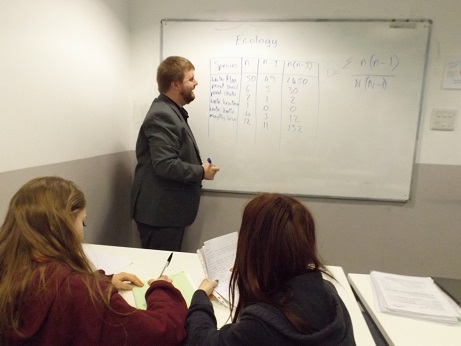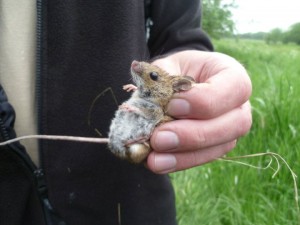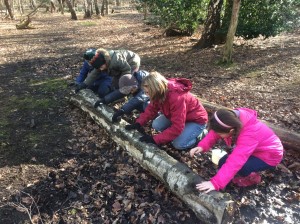Darren Jones – Course Team Leader in Animal Care
You can get experience teaching anywhere, it doesn’t have to be in a classroom or a formal setting

Hi Darren! So what is it that you do?
I am a Course Team Leader for Level 2 BTEC Animal Care at South Essex College.
What is your job all about?
The main focus of my job is teaching students 16-19 years old. I predominantly teach on the level 2 Animal Care course starting students off on their college life, but I also teach on the Level 3 Extended Diploma in Animal Management. The units I teach change every year but generally include Animal Health and Welfare; Animal behaviour; British Wildlife Habitats Improvement; Maintaining Wildlife Populations. These are interesting subjects and we need to find inventive, exciting ways to present the information to the students.
Being a vocational course, I teach theory and practical sessions and the students also have a work experience unit where their progress is checked and tracked to make sure they are on target. Research is a big part of my job as I need to keep my knowledge current and know that I am teaching the students the correct information. I have to make sure the students are progressing through their course and to do this on BTEC, we use course work instead of exams. At the start of the year I need to write the assignments, throughout the year I teach the information, hand out assignments and mark them. This is how we make sure the students are developing their skills and knowledge.
As well as paper work, I maintain good, professional relationships with parents and other tutors.
What does a typical day for you entail?
Every day is different. I get to work for 8.30am to prepare my lessons and make sure I have everything I need. My teaching hours vary; they are between 3-7 hours daily but add up to 24 hours a week. The rest of the time during the day is spent preparing lessons for the following week, marking or talking to parents and students about their progress.
On an average day I have 4 hours of teaching. During this time, I like to engage with the students and ask them about their experiences with the subject. I enjoy finding out what they have or haven’t already done, e.g. if they haven’t done any field surveys for maintaining wildlife populations, we can go and do some grass or fresh water surveys in the local public park. Although lessons are split between theory and practical, we spend a lot of time in the classroom so students can have a good base for completing their course work.
I usually have 2 hours to prepare lessons for the following week and the majority of this time is spent researching and writing worksheets. The lessons I teach are 2 hours long so there needs to be a variety of different activities to keep students engaged throughout. During this time I have meetings with the rest of my team about improvements that can be made to the course and share good practice for future lessons.
I also have to make sure the students are kept on track throughout the course, so I mark work, discuss with other team members where the students are up to in their lessons and make sure they are handing work in. If any issues arise, I have meetings with students or parents to make sure we can get things back on track.
What qualities are important for your role?
The main skills involved with my job are time management and communication. Time management helps split your time equally between different tasks. There is a lot to the job and if you just focus on one area, you can fall behind with work. Communication skills are a big part as you need to be able to work with a team of people. You also need to be able to convey the information to students. This can be verbally or non-verbally. You also need to be able to communicate with parents, which can sometimes involve talking about difficult topics and situations.
Other helpful skills are flexibility – you may be asked to work extra such as parents evening or open evening to tell prospective students about the course; problem solving – every day is different and unexpected issues can arise that you will have to deal with; Knowledge- you will need to know about the subject and how to convey the information in inventive and exciting ways and Passion- to help keep the students engaged and give them the best experience possible.
There are many ways to get into teaching. You can have a Foundation (FdSc or Bachelors (BSc) Degree in a related subject but you also need to have or be working towards a teaching qualification of some kind. After this you can gain Qualified Teachers Status (QTS) but this is not essential unless you want to teach in secondary or primary schools.
What led you into your current role?
I got into teaching animal management and ecology by accident; I studied engineering at college but decided to have a gap year in Australia. Throughout this year, I worked in different roles in the animal industry working on farms and volunteering in zoos. When I got home I realised that working with animals is something I enjoyed and would like to continue to do, so I applied to study the Foundation Degree in Animal Management at Writtle College. Throughout this I volunteered at Tropical Wings Zoo as part of a work placement. This turned into a part time job so I could apply what I was learning to a practical environment. Working with a variety of animals helped me get more experience throughout the animal sector. I assisted with a project helping to release butterflies into the wild and this is what started off my interest in ecology and British wildlife. During my time at the zoo, I did some educational talks and a lot of work talking to the public.
I realised communicating about common interests and educating was something I found interesting and enjoyable. I then took up a position working on a farm training people how to look after livestock; they were just starting out and only had 2 cows, 6 sheep and 12 chickens! This was my first taste of actual teaching and I found it was something I was good at; talking about a subject I enjoyed. It was rewarding see people I had taught using the knowledge I had given them and it made me realise I wanted to carry on teaching, so I decided to apply to do the Post Graduate Certificate in Education (PGCE). I did this part-time while working at Asda and volunteering in teaching.
About 6 months into my PGCE I got a job as a Science Technician working in a college, giving me more experience working with students. This gave me the boost into teaching that I needed and when a job came up I applied for it and completed my PGCE. Since finishing I have been volunteering at Hanningfield Reservoir Nature Reserve looking to further my career focussing more on ecology and wildlife education.
What recommendations would you give to someone interested in a role like yours?
If you would like to get a job in teaching you will need to have qualifications relevant to the field you would like to teach in. Something animal or conservation based, or something that gives you some biology knowledge. It is a practical course so practical experience in the industry is a plus as this allows you to give advice on what possibilities there are for the students after the course. You need some basic soft skills so working on presentation skills and communication skills are vital – you will be talking to different students every year and also need to talk to parents and other tutors about the course and student progress. You can get experience teaching anywhere, it doesn’t have to be in a classroom or a formal setting; it can be anything from working in a coffee shop teaching someone how to make a coffee to volunteering in a classroom teaching groups about subjects they are learning for the first time. It is also good to keep your knowledge on the subject up to date, legislation is always being update and there are constantly new issues that can be addressed in the classroom.





No comments yet.